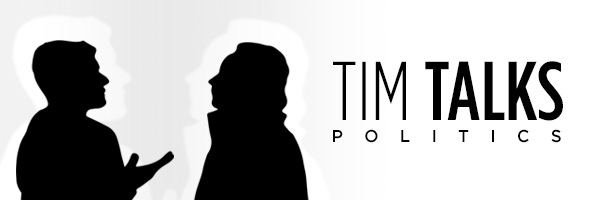Tim Talks Politics - The Weekly Brief, February 2, 2018

The Weekly Brief - February 2, 2018
SOTU
so obviously the president's State of the Union speech is going to take up the majority of this newsletter. However, I'm not interested in finding half a dozen hot takes on the speech. Instead, I'll start by providing you with the transcript of it, followed by some helpful contextual articles.
Everyone has their opinion on how well this speech went, but it might be helpful to first look at how the American people are viewing America one year into the Trump Administration. Pew Research provides insight into policy issues that concern most Americans and the economy, education and terrorism top the list. Trump hit two of the three hard and could claim some victories on the economy and terrorism.
However, there was a noticeable absence in the speech on foreign policy which left some people wondering what the Trump administration's foreign policy strategy will be going forward. this is a valid concern but, as War on the Rocks points out, the presidential job may be becoming too big for any one person.
As is tradition, the opposition party provided its response to the State of the Union or, rather, responses. The multiple responses seem to be a case of the same message for diverse audiences, yet the American Enterprise Institute notes that many of Trump's critics still don't understand why he was elected which could the effectiveness of such messages at least outside of bases.
Immigration, of course, was one of the more contentious issues of the speech but the Council of Foreign Relations notes that Mexico has other, bigger, problems besides the vagaries of America's on-again-off-again immigration reform debate. So perhaps little, if any, political capital was lost for Trump.
That first year though…
Perhaps the most consistent analysis I heard on the State of the Union speech was that it was more of a political speech than a policy speech. So you have to dig a little deeper to get a sense of how Donald Trump's first year in office actually went. FiveThirtyEight provides good insight into a series of his major campaign promises and policy initiatives and looks at how America is doing in those areas.
The Federalist addresses the same question from the perspective of how Trump's first year may be playing to his conservative base by providing grades from conservative policy wonks. Putting that all in context, Brookings provides ten things they learned in January about the world and American politics.
Is it the economy, is it?
Though the American economy had a good first year under Trump that doesn't mean all problems have been solved. Brookings reports that the average American worker did not get much of a raise last year though AEI does note that while the middle class is shrinking that's not because more people are becoming poor.
Still, across the country, many states are still struggling economically and these happened to be the states that overwhelmingly voted in favor of Donald Trump. This may be significant in midterm elections.
Looking ahead
So now it's on to Year 2 and looking ahead there are several areas of concern that were not addressed in the State of the Union, mostly on the foreign policy side of things.
Asia Times reports that North Korea may indeed be working on solid fuel rocket engines which are part of the crucial next phase of their nuclear program.
War on the Rocks reports that there are seven deadly sins that cybersecurity must face in the coming year.
A meeting of the world’s leaders at the World Economic Forum in Davos is also happening this week which means another arena in which Team Trump must sell America’s new(ish) approach to trade.
To sum it up nicely in state-of-the-union style, Stratfor provides a State of the World report.
War in the Middle East?
The major foreign-policy context for the State of the Union was the Middle East given that Vice President Pence recently paid a visit to that region. The notable moment of that trip was the Veep announcing an accelerated timetable for the embassy move to Jerusalem which could signal an upcoming rollout on a proposed peace initiative. Politico suggests there’s a broader strategy developing at Davos to get the Palestinians to the negotiation table.
Lebanon
But Jerusalem is not necessarily the only issue that Israel's dealing with. Besides an upcoming election, Jerusalem is also looking at border problems. The Carnegie Endowment reports that Lebanon is in a temporarily stable position, but Al-Monitor reports that Israel and Hezbollah could be headed towards a third Lebanon war in the midst of that Lebanese calm.
Israel also suspects a Hamas build-up of military force in the Golan Heights. With Hezbollah girding for war in unstable Lebanon and Hamas emerging in the Golan, Iran is showing an increasingly assertive hand in Syrian and Lebanese politics.
Syria
Israel's concerns on its northern borders suggest that there may be problems in a Syria still dealing with Turkey’s incursion into the Afrin region. Turkey's already claiming some victories, but there are still battles being fought. It remains to be seen if Turkey will get much in the way of benefits to its regional power position as Israel and Iran begin jockeying for position.
May the Force be with US
The ongoing conflicts in the Middle East are low-level regional battles between local players, which largely has kept America in the background. For now. It still raises questions post State of the Union on the structure of the American fighting force. War on the Rocks supplies one perspective on thinking through America's force structure and strategic posture in light of upcoming budgetary battles in the unstable global context.


